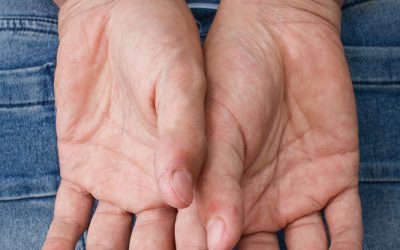Content
The ultimate goal when it comes to treating alcohol dependence or as the DSM-5 now calls it alcohol use disorder, is to help with establishing abstinence from drinking. The treatment process consists typically of two parts short-term and long-term. There are several reasons why someone with alcohol use disorder or alcohol dependency would seek treatment. This can either be a personal reason or because of law enforcement. There is a series of different levels of treatment processes depending on the severity subtype. Some would or could benefit from medication treatment with psychosocial treatment, while others could just benefit from psychosocial treatment.
Listed below are different some different types of treatments that are used with treating alcohol dependency/alcohol use disorder depending on several What is the difference between alcohol abuse factors that vary from person to person. Alcohol is a psychoactive substance, which means that it produces changes in the way our brains behave.
Featured Services
Call your country’s emergency services number (911 in the U.S.) and wait with them for medical help to arrive. You’re spending less time on activities that used to be important to you because of your alcohol use. For example, getting arrested for driving under the influence or for drunk and disorderly conduct.

Delirium tremens is a symptom of severe alcohol withdrawal that can be potentially fatal. Contact emergency services immediately if you experience symptoms such as fever, involuntary muscle contractions, seizures, delusions, hallucinations, or rapid mood swings as you withdraw from alcohol. Being without alcohol for any period of time can make you feel physically ill.
Withdrawal
In most cases, a person’s likelihood of developing an alcohol use disorder is directly related to their drinking habits, such as frequency of drinking and volume of alcohol consumed. Research also shows that psychological, biological, and social aspects also play a part in an individual’s predisposition to developing an alcohol use disorder. It’s common for people with a mental health disorder such as anxiety, depression, schizophrenia or bipolar disorder to have problems with alcohol or https://ecosoberhouse.com/ other substances. Alcohol withdrawal can occur when alcohol use has been heavy and prolonged and is then stopped or greatly reduced. Signs and symptoms include sweating, rapid heartbeat, hand tremors, problems sleeping, nausea and vomiting, hallucinations, restlessness and agitation, anxiety, and occasionally seizures. Symptoms can be severe enough to impair your ability to function at work or in social situations. In most people’s minds, problematic drinking is the same as alcoholism.
Very high concentrations of alcohol in the blood can cause breathing problems, coma, or death. Had to drink much more than you once did to get the effect you want, or found that your usual number of drinks had much less effect than before. National Institute on Drug Abuse.Words matter – terms to use and avoid when talking about addiction. Awareness of the compulsion to drink or craving for alcohol, regardless of whether you admit it to others. People who have a dependence on alcohol exhibit some or all of the following characteristics.
Early Signs of Alcoholism
Many drinking problems start when people use alcohol to self-soothe and relieve stress (otherwise known as self-medicating). Getting drunk after every stressful day, for example, or reaching for a bottle every time you have an argument with your spouse or boss. Using alcohol in situations where it’s physically dangerous, such as drinking and driving, operating machinery while intoxicated, or mixing alcohol with prescription medication against doctor’s orders. Drinking alcohol inherently carries a certain level of risk to one’s own health as well as the health of others. These risks are minimized to a certain extent by things such as laws, like those designed to curb people from drinking under the influence, as well as health guidelines developed by doctors and researchers. Spending a lot of time obtaining, using, and recovering from the effects of alcohol.
- Have a confidential, completely free conversation with a treatment provider about your financial options.
- Those with moderate to severe alcohol use disorders generally require outside help to stop drinking.
- The National Institute on Alcohol Abuse and Alcoholism defines heavy drinking as drinking five or more drinks on the same occasion for five different days in any 30-day period.
- However, the main characteristic that distinguishes addiction from dependence is the combination of mental and physical dependence with uncontrollable behavior in obtaining and using a substance.
Many people with alcohol use disorder hesitate to get treatment because they don’t recognize that they have a problem. An intervention from loved ones can help some people recognize and accept that they need professional help.
Alcohol Misuse Vs. Abuse: How to Tell the Difference
Alcohol abuse applies to anyone who has experienced two or more of the above symptoms over the course of a year. If these symptoms manifest with less frequency, you are probably dealing with a case of alcohol misuse.
Which behavior is most likely to indicate alcohol abuse?
- Poor coordination.
- Slurred speech.
- Impaired thinking.
- Memory impairment.
- Wanting to stop drinking but not managing to do so.
- Diverting energy from work, family, and social life in order to drink.


